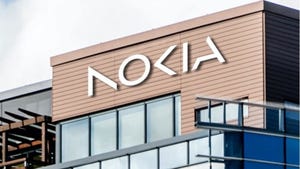facebook-bigFacebook has created an initiative—Internet.org—to bring internet connectivity to the poor and underserved, recruiting a number of telecoms industry vendors as partners. But while the new group cites the importance of mobile operators in bringing connectivity to the unconnected, there are none among the founders.
August 21, 2013

Facebook has created an initiative—Internet.org—to bring internet connectivity to the poor and underserved, recruiting a number of telecoms industry vendors as partners. But while the new group cites the importance of mobile operators in bringing connectivity to the unconnected, there are none among the founders.
Instead Facebook has assembled Ericsson, MediaTek, Nokia, Opera, Qualcomm and Samsung to drive the new project. Internet.org aims to “make internet access available to the two-thirds of the world who are not yet connected, and to bring the same opportunities to everyone that the connected third of the world has today,” the group said in a launch statement.
The initiative is influenced by the Open Compute Project, a Facebook-led programme that has reduced the cost of cloud computing by driving efficiency and innovation in datacentre technology.
Much of what Internet.org has set out to achieve in terms of the efficiency of mobile networks and pressure on device costs is already drawing significant focus from the industry. But change is not coming fast enough, Johan Vibergh, head of Ericsson’s Networks business unit told Telecoms.com.
“It is happening but it’s not happening quickly enough,” Vibergh said. “2.7 billion people have access to the internet but growth is about nine per cent per year on year and we want it to happen even quicker. We want to identify impediments, blockers and bottlenecks and take them away,” he said.
Ericsson has driven power requirements from its network equipment down by ten per cent every year for the last five years and this will remain an important area of focus, he said. Meanwhile at the front end much work can be done to optimise smartphone applications so that they require less data to be transmitted back and forth. Such enhancements reduce the cost of connecting the world’s poor, Vibergh said.
Those costs are borne by the operators who must find business models to make deployments profitable in these market conditions. “It’s really important that operators have good pricing models for data—especially prepaid pricing models that are easy to use and understandable,” said Vibergh.
But while the announcement said that mobile operators will “play a central role” in the effort, and indicated the group’s intention to develop “new models that align incentives for mobile operators, device manufacturers, developers and other businesses to provide more affordable access,” operators themselves are absent from the project as it stands.
“We would like to have some leading operators participating,” said Vibergh. When asked whether participation equated to membership, he added: “Let’s see how that plays out.”
The GSMA, which runs significant development projects of its own, was not able to provide a comment.
The Broadband World Forum is taking place on the 22nd – 24th October 2013 at the RAI Exhibition and Convention Centre, Amsterdam. Click here to download a brochure for the event and here to register for a conference pass.
About the Author(s)
You May Also Like








.png?width=300&auto=webp&quality=80&disable=upscale)


_1.jpg?width=300&auto=webp&quality=80&disable=upscale)


.png?width=800&auto=webp&quality=80&disable=upscale)